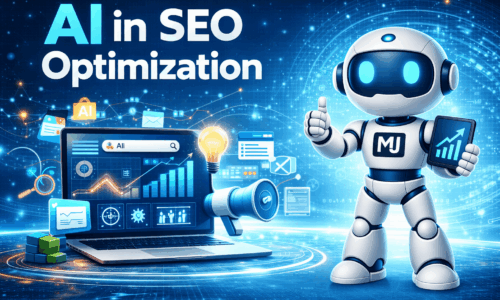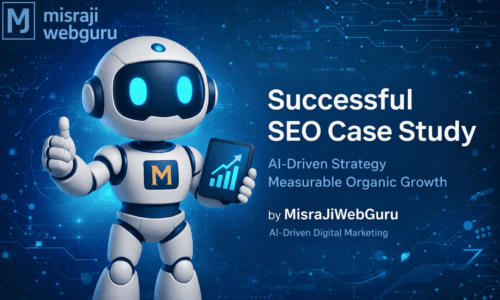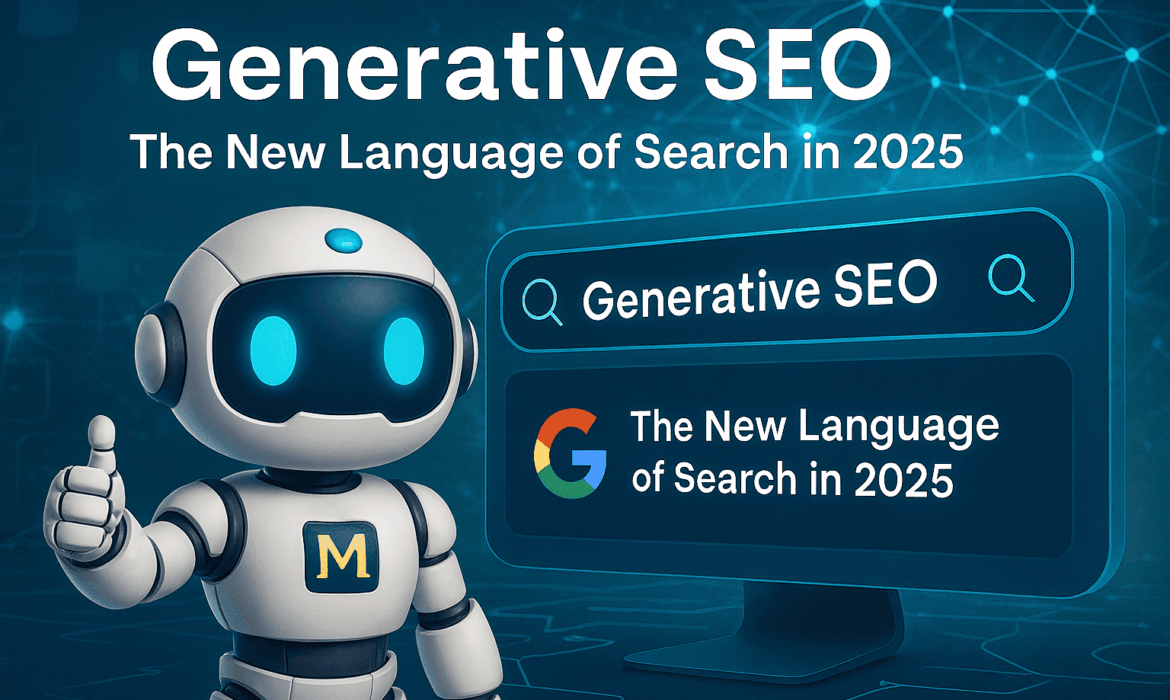
When Google Learned a New Language
“Generative SEO is the skill of teaching AI to speak your brand’s truth.”
There was a time when Google was like a librarian. You typed in words, and it pointed you to shelves of books—websites filled with information. If you knew the right “keywords,” you got what you wanted.

But in 2025, something dramatic happened. The librarian didn’t just show you the shelves anymore—it started answering your questions directly.
This new language of search is powered by Generative AI. And the way we adapt to it is called Generative SEO.
What is Generative SEO? A New Conversation
Generative SEO is not about tricking Google. It’s about creating content that AI can understand, trust, and repeat.
Traditional SEO asks: “How do I rank on page one?”
Generative SEO asks: “How do I make Google choose my words in its answer?”
Example: When someone searches “best SEO strategy in 2025,” Google no longer lists 10 links. Instead, it writes a summary—its own story. That story is built from sources it trusts. If you’re not one of them, you don’t exist.
Why Generative SEO Matters in 2025
Let’s be clear: this is not optional.
- AI Overviews dominate screen space → your link may not even appear.
- Zero-click searches are exploding → people get answers without leaving Google.
- Only a few voices are chosen → authority belongs to the cited, and silence to the rest.
For businesses, this is scary. For freshers, this is an opportunity.
“If you’re not in the AI’s story, you’re erased from the search.”
Generative SEO vs Traditional SEO
Here’s the difference in plain sight:
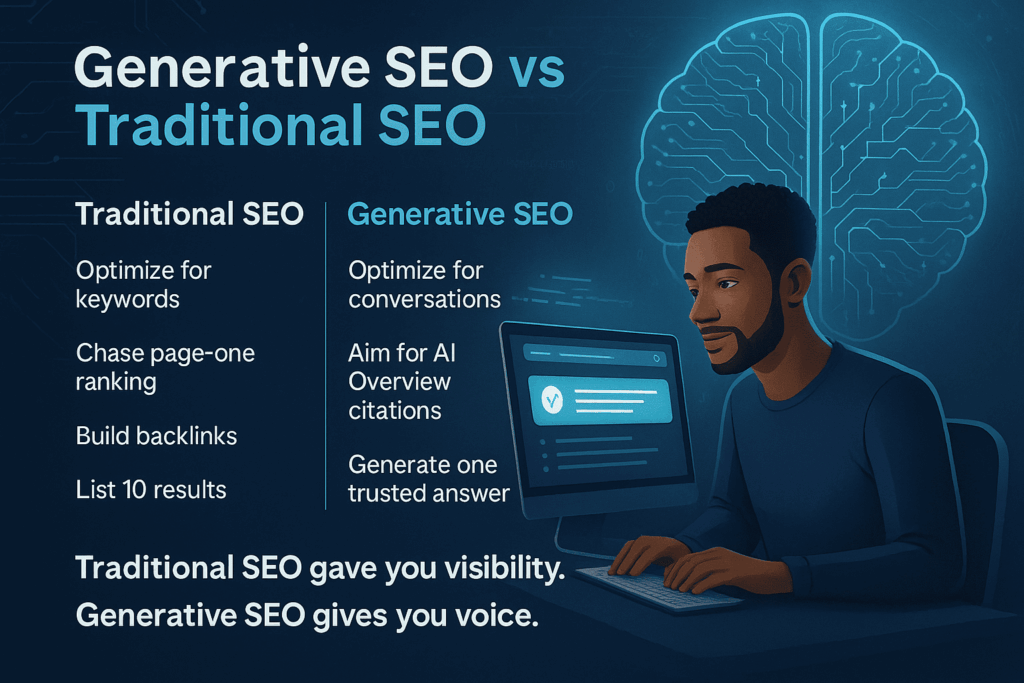
| Traditional SEO | Generative SEO |
|---|---|
| Optimize for keywords | Optimize for conversations |
| Chase page-one ranking | Aim for AI Overview citations |
| Build backlinks | Build topical authority + clarity |
| List 10 results | Generate one trusted answer |
Traditional SEO gave you visibility.
Generative SEO gives you voice.
How Generative SEO Works: The Mechanics
Think of Generative SEO as teaching a language.
- AI listens to the query → not just words, but the meaning.
- AI scans content → looking for clarity, structure, and authority.
- AI stitches an answer → blending voices it trusts.
- AI cites only a few → those brands win trust and visibility.
“Generative SEO is not about stuffing words. It’s about shaping meaning.”
How to Optimize for Generative SEO (Step by Step)
- Write for Questions, Not Just Keywords
- Anticipate what your audience will ask.
- Example: “What are the best SEO tools for beginners in 2025?”
- Add Structure for AI
- Use headings, lists, FAQs.
- AI prefers content it can scan and break down easily.
- Blend Facts with Stories
- Cite data, but humanize with examples.
- Humans remember stories; AI trusts facts.
- Implement Schema Markup
- Tell Google which part of your content is the “answer.”
- Build Clusters, Not Islands
- Don’t write one-off blogs. Connect them.
- Example: This blog links to SEO Keywords Guide and Answer Engine Optimization.
“Generative SEO is architecture. Every word must be placed where AI can find it.”
Story: The Brand That Spoke the New Language
I worked with a SaaS company last year. They had blogs filled with keywords, backlinks, and all the “right” SEO tricks. Yet their traffic flatlined.
Why? Because AI Overview was already giving answers—and they weren’t cited.
We restructured everything:
- Wrote blogs in Q&A format.
- Added schema markup.
- Built topical clusters.
Within two months, their blog was quoted in Google’s AI Overview. Traffic grew by 60%. But more importantly, their reputation exploded—because being cited by Google felt like an endorsement.
“Generative SEO doesn’t just get you found. It makes you trusted.”
Common Mistakes Professionals Make
❌ Writing blogs stuffed with keywords.
❌ Ignoring FAQs and user intent.
❌ Focusing only on backlinks.
❌ Not updating old content for AI.
❌ Treating Generative SEO as “future”—when it’s already present.
10 FAQs About Generative SEO
- What is Generative SEO?
A way of optimizing content so AI-generated answers cite your brand. - How is it different from SEO?
SEO ranks pages. Generative SEO ranks answers. - Does it replace SEO?
No—it evolves it. Both work together. - Why is it important in 2025?
Because AI-generated search dominates visibility. - Who benefits from it?
Businesses, professionals, even small brands who provide clear answers. - What tools help?
Ahrefs, SEMrush, SurferSEO, schema generators. - Is keyword stuffing useful here?
No. AI ignores noise and rewards clarity. - Does it apply beyond blogs?
Yes—service pages, product descriptions, FAQs, all can be optimized. - How fast can results show?
2–3 months with consistency. - Why is it called the new language of search?
Because AI speaks meaning, not just words—and you must learn to speak back.
Conclusion: My Message to You
If you’re new to SEO, here’s my advice: stop worrying about stuffing keywords. Start writing like you’re answering a real person’s question.
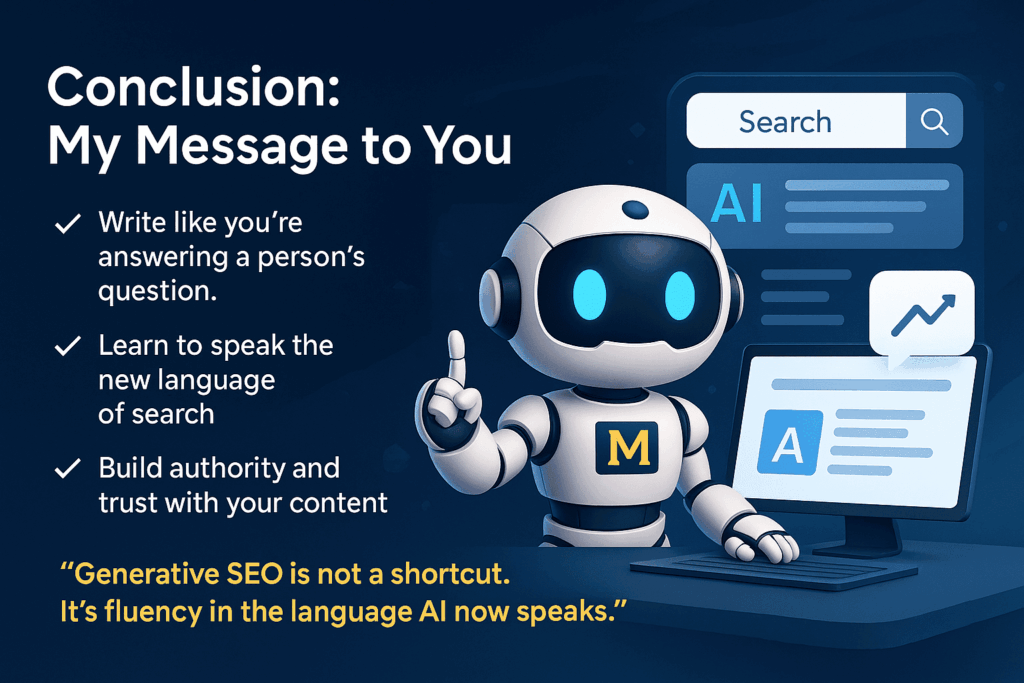
If you’re a professional, my message is this: adapt. The search engine you mastered is gone. The new one speaks a different language. Learn it—or lose visibility.
At MisraJiWebGuru, I’ve seen one principle hold true:
“Generative SEO is not a shortcut. It’s fluency in the language AI now speaks.”
In 2025, your success will depend on one thing—whether AI trusts your voice enough to make it part of the answer.

